 W
WThis is a list of anarchist communities representing any society or portion thereof founded by anarchists that functions according to anarchist philosophy and principles. Anarchists have created and been involved in a plethora of community experiments since the 19th century. There are numerous instances in which a community organizes itself along philosophically anarchist lines to promote regional anarchist movements, counter-economics and countercultures. These have included intentional communities founded by anarchists as social experiments and community oriented projects, such as collective organizations and cooperative businesses. There are also several instances of mass society "anarchies" that have come about from explicitly anarchist revolutions, including Makhnovia in Ukraine, Revolutionary Catalonia in Spain and the Shinmin autonomous region in Manchuria.
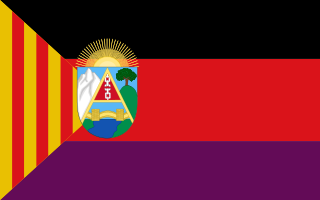 W
WThe Regional Defence Council of Aragon, was an administrative entity created by the Confederación Nacional del Trabajo (CNT) in the context of the Spanish Revolution, during the Spanish Civil War. Until its dissolution, the CRDA controlled and administered the eastern half of Aragon. Its economy was based on the communities, the productive engine of the region, as well as the exchange between them and other regions. The price of goods was controlled and inflation was avoided.
 W
WBlitz House is an anarchist, communist and socialist self-managed social centre in Oslo, Norway, founded in 1982. Having started as a squat, it is now legalized and based on Pilestredet. The centre hosts activities such as political meetings, a feminist radio station (radiOrakel), a vegan café and practice rooms for musicians.
 W
WThe Capitol Hill Occupied Protest or the Capitol Hill Organized Protest (CHOP), originally Free Capitol Hill and later the Capitol Hill Autonomous Zone (CHAZ), was an occupation protest and self-declared autonomous zone in the Capitol Hill neighborhood of Seattle, Washington. The zone, originally covering six city blocks and Cal Anderson Park, was established on June 8, 2020, by George Floyd protesters after the Seattle Police Department (SPD) left its East Precinct building. The zone was cleared of occupants by police on July 1. Its formation was preceded by a week of tense interactions between protesters and police in riot gear which began on June 1 and escalated on June 7 after a man drove his vehicle into the crowd and shot a protester near 11th Avenue and Pine Street. Tear gas, flashbangs and pepper spray were used by police in the densely populated residential neighborhood. On June 7, the SPD reported that the crowd was throwing rocks, bottles and fireworks and shining green lasers into officers' eyes. The next day, police boarded up their building and moved out of the East Precinct in an effort to de-escalate the situation.
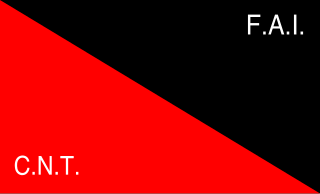 W
WRevolutionary Catalonia was the part of Catalonia controlled by various anarchist, communist, and socialist trade unions, parties, and militias of the Spanish Civil War period. Although the Generalitat of Catalonia was nominally in power, the trade unions were de facto in command of most of the economy and military forces, which includes the Confederación Nacional del Trabajo which was the dominant labor union at the time and the closely associated Federación Anarquista Ibérica. The Unión General de Trabajadores, the POUM and the Unified Socialist Party of Catalonia were also prominent.
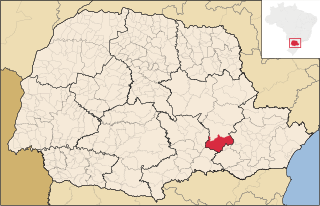 W
WCecília Colony was an experimental commune based on anarchist principles. The colony was founded in 1890, in the municipality of Palmeira, in the state of Paraná, by a group of libertarians mobilized by the Italian writer and agronomist Giovanni Rossi.
 W
WFreetown Christiania, also known as Christiania, is an intentional community and commune of about 850 to 1,000 residents, covering 7.7 hectares in the borough of Christianshavn in the Danish capital city of Copenhagen.
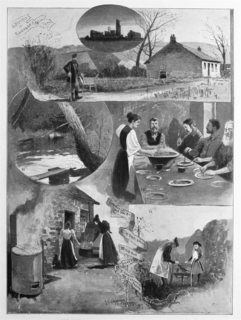 W
WClousden Hill Free Communist and Co-operative Colony was an anarcho-communist commune from 1895 until 1898 in Forest Hall, Newcastle upon Tyne, England. The commune was part of the back-to-the-land movement, operating a 12-acre farm under collective ownership and democratic control.
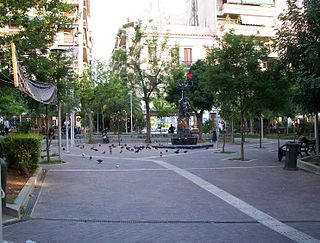 W
WExarcheia is a neighbourhood in central Athens, Greece close to the historical building of the National Technical University of Athens. The district took its name from a 19th century businessman named Exarchos who opened a large general store there. Exarcheia is bordered on the east by Kolonaki and is framed by Patission Street, Panepistimiou Street and Alexandras Avenue. Exarcheia is renowned for being Athens' historical core of radical political and intellectual activism. Exarcheia is often considered the anarchist quarter of Athens, known for its radical democracy.
 W
WThe Four Thieves Vinegar Collective is an anarchist biohacking group founded in 2015 by Michael Laufer. They have published instructions for the "EpiPencil", an epinephrine autoinjector, and the "Apothecary MicroLab", a do-it-yourself (DIY) device intended to make a variety of medications, most notably pyrimethamine (Daraprim). They have been widely criticized by the medical community for causing potential harm to patients with the DIY instructions, but Laufer claims to defend people's right to attempt their own medical treatment.
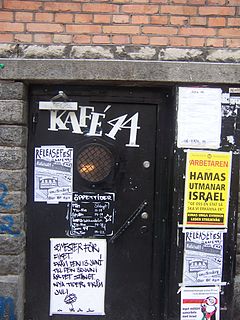 W
WKafé 44 is a café, concert venue, and anarchist bookstore in Stockholm. Based in the Kapsylen work cooperative, which was founded by an artist group in 1976, the café Dagfiket opened in its basement in the early 1980s, and was later followed by the music venue Scen 44 in 1990, and the anarchist bookstore Bokhandeln INFO a few years later.
 W
WLibertaire-Plage was a libertarian (anarchist) summer camp in Châtelaillon-Plage, southwest France, based around Albert Libertad and L'Anarchie in the early 1900s.
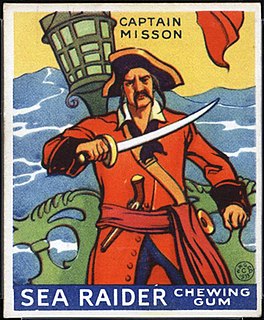 W
WLibertatia was a purported pirate colony founded in the late 17th century in Madagascar under the leadership of Captain James Misson.
 W
WMakhnovshchina or Makhnovia, resulted from an attempt to form a stateless anarchist society in parts of Ukraine during the Russian Revolution of 1917–1923. It existed from 1918 to 1921, during which time free soviets and libertarian communes operated under the protection of Nestor Makhno's Revolutionary Insurrectionary Army. The area had a population of around seven million.
 W
WThe Málaga Public Health Committee was a revolutionary organism that emerged after the coup d'état that gave way to the Spanish Civil War, between the Nationalists and the Republicans. This entity was in charge of managing all political and social affairs until the city fell to the nationalist forces.
 W
WDuring the Mexican Revolution, from roughly around 1913 to 1917, the peasants from the Mexican region of Morelos established a territory with an alternative political, and economic system. They were heavily influenced by Emiliano Zapata and his ideology of zapatism. The political and economic structure of the territory was militarily supported by the Liberation Army of the South, which was where the army was formed. The commune is also at times compared to Nestor Makhno's anarchist free territory in eastern Ukraine, due to their shared structures and ideals.
 W
WQilombo was a community space in West Oakland, California, United States of America from 2011 through 2019. It was originally opened as an anarchist self-managed social center then changed its name and became a space for local Black and Brown people from 2014 onwards. The centre initiated the Afrika Town project and created the Afrika Town garden on an empty lot adjacent to the Qilombo building. Qilombo fought its eviction and was finally closed in 2019 by Alameda County officials.
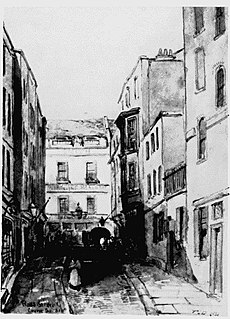 W
WThe Rose Street Club was a far-left / anarchist organisation based in what is now Manette Street, London. Originally centred around London's German community, and acting as a meeting point for new immigrants, it became one of the leading radical clubs of Victorian London in the late-nineteenth century. Although its roots went back to the 1840s, it was properly formed in 1877 by members of a German émigré workers' education group, which soon became frequented by London radicals, and within a few years had led to the formation of similar clubs, sometimes in support and sometimes in rivalry. The Rose Street Club provided a platform for the radical speakers and agitators of the day and produced its own paper, Freiheit—which was distributed over Europe, and especially Germany—and pamphlets for other groups and individuals. Although radical, the club initially focused as much on providing a social service to its members as on activism. With the arrival of the anarchist Johann Most in London in the early 1880s, and his increasing influence within the Club, it became increasingly aligned with anarchism.
 W
WThe Stapleton Colony, based in Stapleton, North Yorkshire, is a Christian pacifist and anarchist community, and the only remaining colony of the Brotherhood Church. By 2016 the population of the colony had declined to four residents.
 W
WThe Strandzha Commune or Strandzha Republic was a short-lived anarchist commune. It was proclaimed during the Preobrazhenie Uprising in 1903 by Internal Macedonian Adrianople Revolutionary Organization rebels in Strandzha, in the Adrianople Vilayet of the Ottoman Empire.
 W
WThe Stratford Dialectical and Radical Club was a late nineteenth-century radical club based in Stratford, East London. Founded in 1880 by disaffected members of the National Secular Society who wished their organisation would involve itself in the social and political issues of the day rather than merely argue against the existence of God, it became one of the first openly socialist societies in London. Although it only existed for a few years, the club attracted high-profile lecturers, including Russian anarchist Peter Kropotkin, and is considered by scholars to illustrate a shift in popular perspective from religious dissent to socialist political theory.
 W
WSvartlamon is an alternative district which describes itself as "a gathering of houses in a little place called Lademoen north east of the center of Trondheim, a city in Norway". Most of the houses were built at the end of the 19th century or the beginning of the 20th century. Svartlamon is a result of many years of political struggle which culminated in 2001 when the city parliament decide to rehabilitate the existing buildings and develop the area as an experimental arena for city ecology. Norway's tallest wooden building was built here as the first new construction after this reorganization.
 W
WThe Tenacious Unicorn Ranch is a queer and transgender community and working ranch in Custer County, Colorado, United States. Located in a conservative part of Colorado, members of the ranch often carry firearms and wear body armor due to harassment and threats of violence against the community, particularly from local right-wing militias. The Tenacious Unicorn Ranch primarily raises alpaca, but is also home to several other kinds of livestock.
 W
WThe Trumbullplex is a housing collective and showspace in the Woodbridge neighborhood of Detroit, Michigan, USA.
 W
WUFFA is an anarchist youth house in Trondheim, Norway. The self-managed social centre provides a location for concerts and self-organised activities such as an infoshop at the Ivar Matlaus Bokkafé, a hacklab and an anarchist newspaper. Squatterd in 1981, it moved to its present location the following year. The centre was burnt down in 2010 and then rebuilt.
 W
WUtopia is an unincorporated community in far southern Franklin Township, Clermont County, Ohio, United States, along the banks of the Ohio River. Utopia has been referred to as a "ghost town" although there are still people who live there.
 W
WVilla Amalia is the name of the building that hosted the former Second High School of Athens in Greece. It is located on the corner of Acharnon and Heiden streets, near Victoria metro station. It was an anarchist squat before its eviction in 2012. It reopened as a school in 2016.